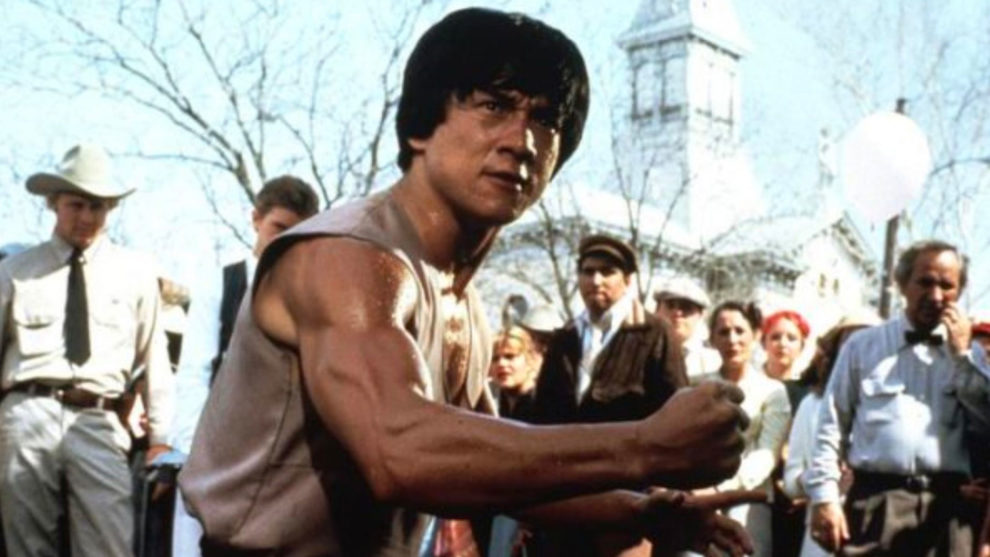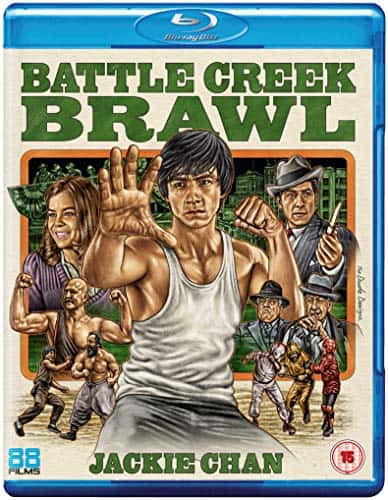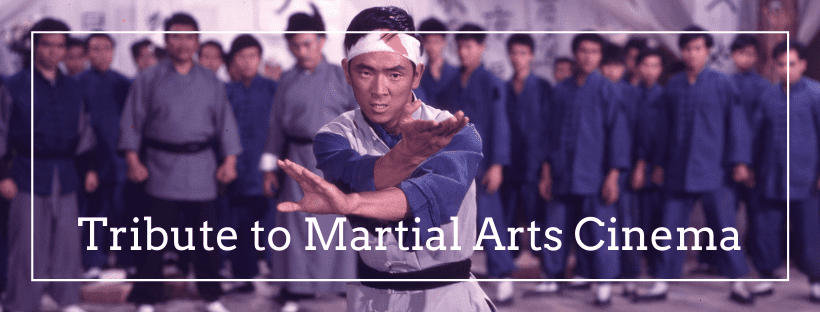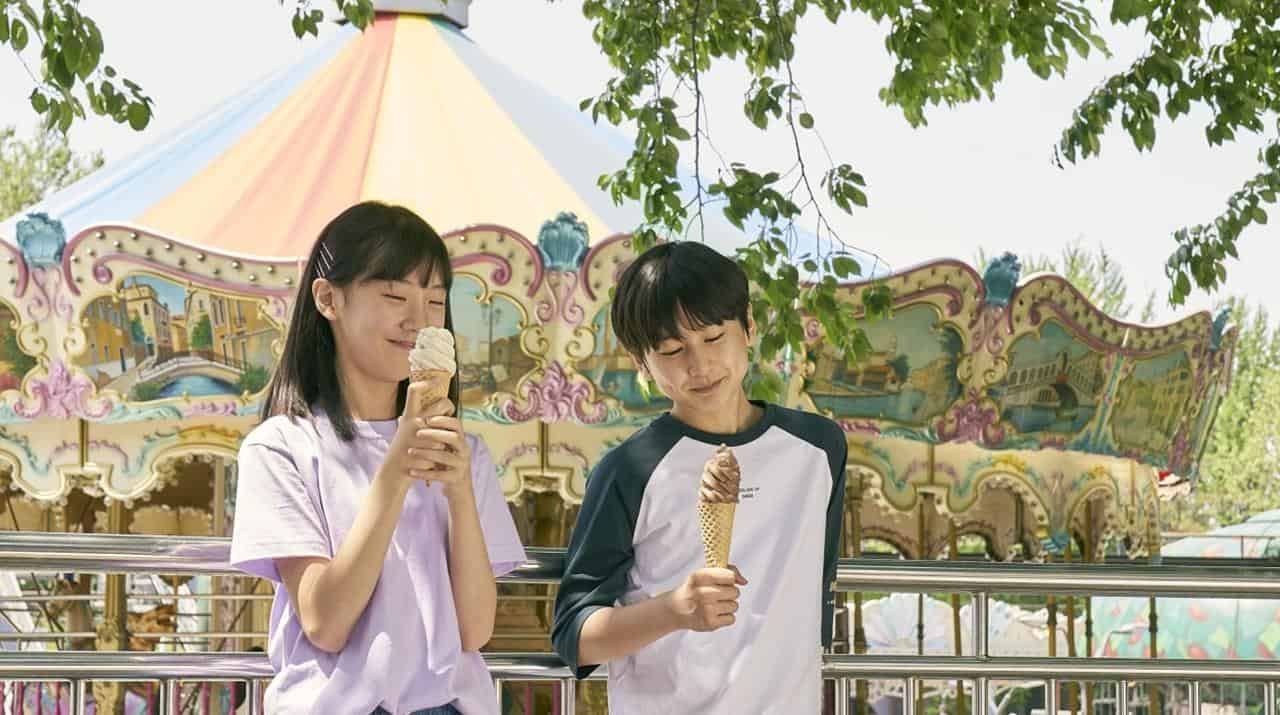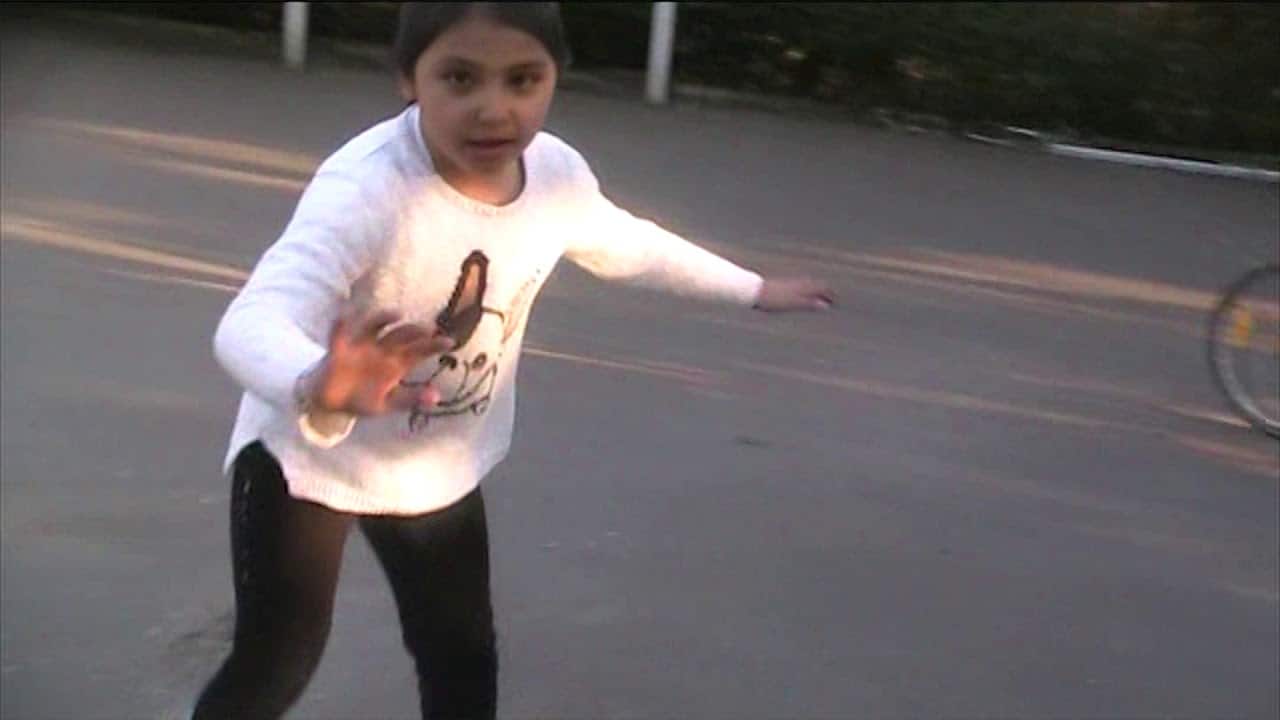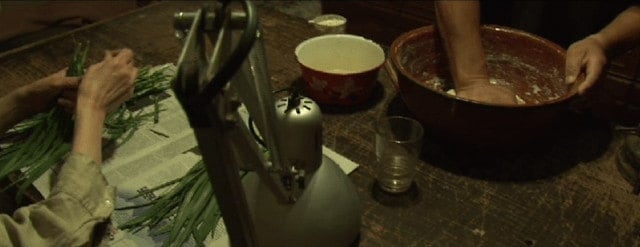After he had succeeded in making a name for himself in his home country, martial arts star Jackie Chan set sails for Hollywood, trying to become a leading man in genre cinema. While he had relied on his collaboration with directors such as Lo Wei to establish himself in Hong Kong, he would work with filmmaker Robert Clouse, famous for his collaboration with the great Bruce Lee in “Enter the Dragon”, to follow his aspiration of becoming an international action icon. In “Battle Creek Brawl”, also known as “The Big Brawl”, Chan would deliver his trademark blend of martial arts and humor, while at the same time satisfying the kind of action entertainment typical for US-American cinema. The result is modestly entertaining, but fails to fully convince and actually captivate audiences.
Buy This Title
on Amazon
Set in the 1930s, Jerry Kwan (Jackie Chan) is the son of a restaurant owner who has immigrated to the USA a long time ago, building his enterprise and also raising a family. While his older brother had become a doctor, much to his father's pride, Jerry Kwan is undecided whether to follow in his father's footsteps and learning to become a cook/ restaurant owner himself or being a fighter, and possibly a coach for others, a desire supported by his uncle Herbert (Mako). During a fight with a crew of mobsters attempting to blackmail his father, a local gangster boss becomes attentive of the considerable talent of the young Chinese man.
By kidnapping his brother's fiancée, he forces Jerry and ultimately Herbert into following his wish to have a fighter in the infamous Battle Creek Brawl, a tournament held in Texas. Even though he promised his dad not to use his martial arts skill, Jerry sees no other option but to prepare for the event, which focuses, as the titles suggests, on brawling, which obeys to little or no rules. One of the most dangerous contenders is a fighter named Billy Kiss (H. B. Haggerty), who has already caused the death of many opponents.
In theory, the idea behind a feature such as “Battle Creek Brawl” is quite appealing. While blending a number of genres such as gangster and action film, the concept of mixing Hong Kong-style martial arts with a more Western approach through the framework of the brawl makes much sense. As the lead character, one of the most important transitions for Jerry is to learn this specific style of fighting, established through a humorous montage-sequence. Considering Chan's talent as both a martial artist and a slapstick comedian, these scenes are representative for the kind of feature, Clouse and his crew were going for with “Battle Creek Brawl”. This journey of the main character seems to coincide with his way of finding into the US-American culture, who, thus far, has looked down upon the Chinese.
However, there are a few issues with “Battle Creek Brawl”, one of which relates to the action, most specifically in the final act of the feature. Although the martial arts-scenes are still solid, the somewhat lackluster approach to some of them is quite surprising considering there are from the same director who did “Enter the Dragon”. Many of these issues seem to link to Clouses's problematic version of “Game of Death”, Bruce Lee's last film, whose best parts were arguably the one Lee had shot and not the ones Clouse added. In the case of “Battle Creek Brawl”, the blend of Chan's unique style and the more Western approach the director was after does not work well. Additionally, there is also the problem of the villain to counter the hero of the story, who is simply non-existent.
In conclusion, “Battle Creek Brawl” is a mildly entertaining martial arts feature. Its blend of Hong Kong and Western action does, however, not mix well and only works in a few instances.


